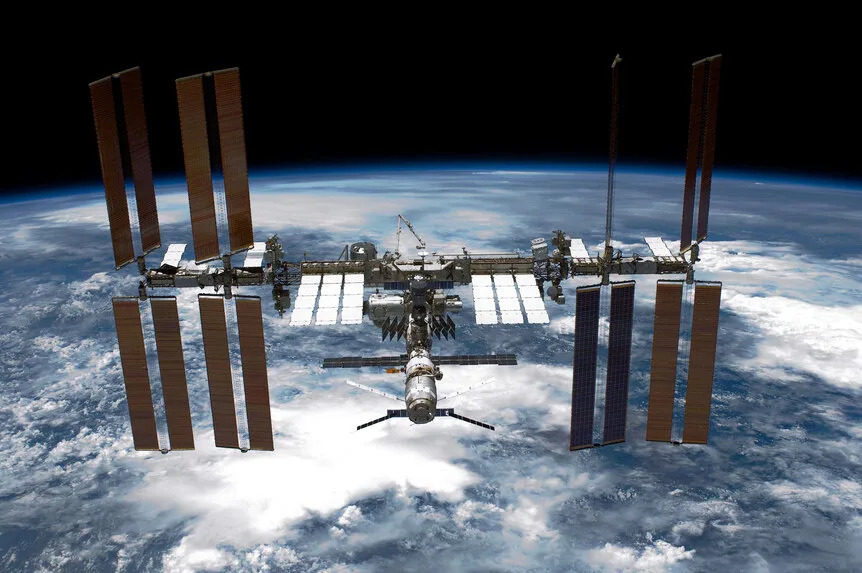Cassidy Ward
Fri, September 29, 2023

The ill-fated crew of SFYY's The Ark (streaming now on Peacock) have plenty of problems to deal with in the nearly empty space between here and Proxima centauri. But taking a one-way trip to another star relieves them of at least one common space travel concern: They don’t have to worry about protecting the Earth from their ship.
Here in the real world, most of our spacecraft stick around in Earth orbit to do their jobs. Even the ones that leave for more distant locales usually ditch a booster or two nearby, adding to the growing space junk problem. For a spacecraft like the International Space Station, we have to have an end of life plan to get it out of the sky safely when we’re done with it.

The ill-fated crew of SFYY's The Ark (streaming now on Peacock) have plenty of problems to deal with in the nearly empty space between here and Proxima centauri. But taking a one-way trip to another star relieves them of at least one common space travel concern: They don’t have to worry about protecting the Earth from their ship.
Here in the real world, most of our spacecraft stick around in Earth orbit to do their jobs. Even the ones that leave for more distant locales usually ditch a booster or two nearby, adding to the growing space junk problem. For a spacecraft like the International Space Station, we have to have an end of life plan to get it out of the sky safely when we’re done with it.
NASA Wants to Know Your Plan to Destroy the International Space Station
The International Space Station (ISS) has been in continuous operation in low-Earth orbit for more than two decades. During that time, crewmembers have carried out countless experiments and delivered a unique view of the world back to those of us on the surface. That mission has been the responsibility of five space agencies — CSA, ESA, JAXA, Roscosmos, and NASA — and more than a dozen contributing nations.

Credit: NASA via Getty Images
At present, Roscosmos has committed to continued use and maintenance of the station through 2028 while the other four agencies will remain through 2030. After that, unless there’s another extension, everyone will come home, and the station’s life will end. Of course, we can’t just leave the largest spacecraft we’ve ever built unattended and uncontrolled. Instead, all five agencies share responsibility for bringing the ISS down in a controlled and safe way. No easy task.
Previous plans relied on Russian Progress vehicles to reduce the station’s orbit and push it into the atmosphere. Now, NASA is looking for a bespoke craft to do the job more efficiently. To that end, NASA has released their final Request for Proposals (RFP) for a novel deorbit vehicle to aid in the destruction of the International Space Station.
Interested parties must submit proposals by November 17. A virtual pre-proposal conference is planned for October 3 at 12:00 p.m. Central.
If you’ve ever wanted to destroy an orbiting science laboratory, this is probably your best chance. Who knows when we’ll have another station that needs vaporizing.
No comments:
Post a Comment